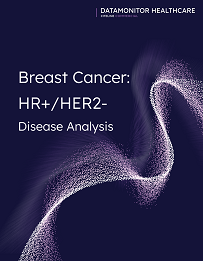Report Library
All Reports
Datamonitor Healthcare Oncology Disease Analysis: HR+/HER2- Breast Cancer
September 22, 2025
CDK4/6 inhibitors remain the standard treatment for advanced and metastatic HR+/HER2- breast cancer patients, and we expect their uptake to increase significantly over the forecast period. Kisqali received a strategic label expansion into the adjuvant treatment setting for early-stage HR+/HER2- breast cancer patients at high risk of recurrence in the US in September 2024, while Verzenio was the first of these therapies to be approved in early breast cancer in the US (in October 2021), with EU approval granted in April 2022. Submissions were based on positive results from the Phase III monarchE trial. Ibrance is not forecasted to receive a similar approval after the failures of the PALLAS and PENELOPE-B trials. Verzenio has also had positive results in the Phase III postMONARCH trial in the post-CDK4/6 inhibitor and endocrine therapy setting, which could lead to a lucrative label expansion.
PARP inhibitors have become the standard option for germline BRCA1/2-mutated breast cancer patients. Despite their efficacy in this population, their overall commercial potential will remain limited in the near term by their positioning in this niche segment. Expansion into the adjuvant setting for earlier-stage disease will improve their outlook, beginning with Lynparza, which reduced the risk of invasive breast cancer recurrence, second cancer or death by 42% over placebo in the Phase III OlympiA trial, resulting in approval for this patient segmentation. AstraZeneca’s saruparib is a first-in-class PARP1 inhibitor that is being investigated in the first line in the Phase III EvoPAR-Breast01 trial and has the potential to be a next-generation PARP with an improved toxicity profile.
| Indications Covered: |
Breast Cancer
HR+/HER2- Breast Cancer |
